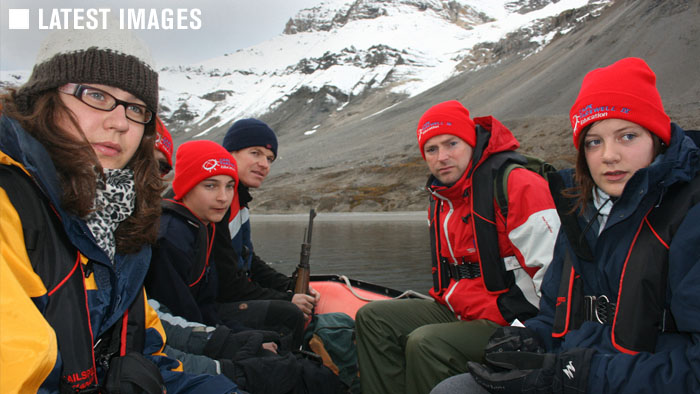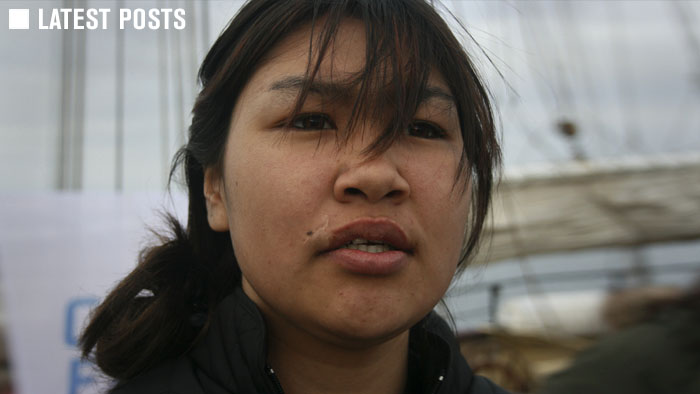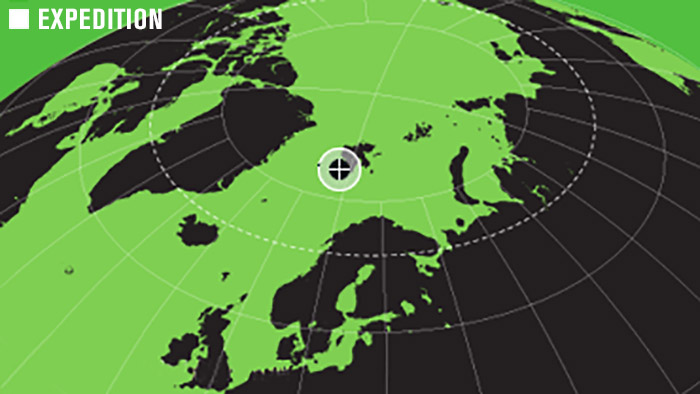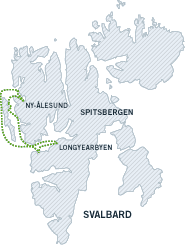Expedition background
Why Svalbard?
“Svalbard, known by many as Spitsbergen, lies between the 78th and 80th parallel, 600 nautical miles from the North Pole. It is at the front line of climate change. Its ice and glaciers are melting and off its coastline the final part of the Gulf Stream, the West Spitsbergen Current, ceases its progress north and sinks to the ocean seabed, an action which acts as a vital pump for the whole North Atlantic Ocean Circulation.
Climate scientists predict that in fifty years there may be no summer ice at the North Pole as the planet continues its inevitable warming process, a warming which is a direct result of human beings releasing an excessive amount of Carbon Dioxide into the atmosphere. This process will accelerate as the ice reflects up to 80% of the Sun’s energy reaching it back into space. The ice-free Arctic sea will absorb over four times more energy, adding to the warming of our planet.
Within this scenario, there is the possibility that with the warming of the Pole, the resulting low density fresh water will stop sinking in the high Arctic and no longer draw the warm Atlantic water north to replace it. Such a scenario would result in the Gulf Stream deflecting south towards Africa, pitching northern Europe into a very different and cold environment.
The reality is that continued excessive releases of Carbon Dioxide and other ‘green house’ gases will have a fundamental effect on the environment of the Artic and consequently Northern Europe. The Svalbard Archipelago is at the fulcrum of this change – a really significant place for the Cape Farewell scientists and artists to work.”
Dr. Simon Boxall
National Oceanography Centre (UK)
Cape Farewell Education
The Cape Farewell project has already demonstrated its reach and appeal, and the deepening interest in the voyages reflects increasing interest in climate change in the UK and worldwide. Since the first voyage in May 2003 Cape Farewell has become a well known public project with a large exhibition at the Natural History Museum in 2006 and the recent BBC2/BBC4 documentary.
Art, Science, Education
There have been three Cape Farewell voyages to date: May 2003, September 2004 and March 2005. The voyages have a compelling narrative element and a strong cast of celebrated artists (for example Gary Hume, Antony Gormley, Ian McEwan, Rachel Whiteread), scientists from the National Oceanography Centre, teachers, media and sailing crew. The arts/science ethos of the voyages highlights a very contemporary way into complex scientific issues through art and performance.
More on Cape Farewell Youth Programme



